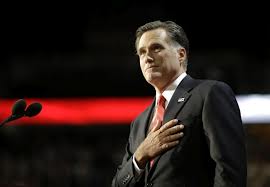 President Obama has often called on us to be true to who we are as a people, as Americans. And in his second term, he has the opportunity to transform the education system back to our core - to where parents are primarily in charge of children’s educations.
President Obama has often called on us to be true to who we are as a people, as Americans. And in his second term, he has the opportunity to transform the education system back to our core - to where parents are primarily in charge of children’s educations.
We have paid a price for transferring authority and responsibility for educating children from parents to government entities. With mostly though not always good motives (remember Brown v. Board of Education), we allowed the dream of the government-owned and operated common school to live on despite overwhelming evidence that, in reality, it wasn’t working. A child’s educational destiny continues mostly to be a function of his/her zip code and the competence of strangers who sit on local school boards.
For more than three decades, a long, slow correction of this anomaly in American society has been underway. First, intradistrict and interdistrict transfers began to appear that allowed limited parental choice within some parts of the public school system. Then magnet schools surfaced, offering options such as vocational, talented and gifted, and language immersion programs, and responding to more demands. In 1992, charter schools emerged. Today they account for almost 6 percent of all public schools, approaching 6000 total, and the number grows steadily each year because the demand from parents so far is insatiable.
Thanks to my colleague at the American Center for School Choice, Gloria Romero, a new tool has appeared. The parent trigger empowers parents to make changes to their school when they are not satisfied. Already 20 states have considered the approach and seven have adopted laws.
Private school choice programs continue to gain support, too. And they have done so despite fierce opposition from forces that want to defend market share over a parent’s right to choose. Today, 32 such programs operate in the country. And in recent years, many school choice bills have either been passed by legislatures with Democratic majorities or signed by Democratic governors. Just as important, once enacted, these programs have only grown. No state has repealed a program or decided choice does not serve the public well. Moreover, the doomsday scenarios that opponents consistently forecast for public education systems have never happened.
It’s said you can’t argue with a river; it is going to flow. Parents are going to take back the authority and responsibility for educating their children. The river has been flowing for more than 20 years and the current is gaining speed. It’s time for more Democrats to stop arguing as families assert their fundamental and universally accepted American value that they know the best choice for their children. Democrats need to work in positive ways to transform our system. We need good schools and there’s plenty of room for all types - public, charter, and private.
President Obama has the life experience, as well as the political skills and credentials, to lead this transformation, and to make it less jarring and less confrontational. (more…)
Big payout to charter school principal. The principal of a failed charter school gets a $519,453 check from the school’s board, reports the Orlando Sentinel, prompting outrage from Orange County school district officials and a call for an investigation from state Sen. David Simmons: “There's no room for abuse by charter or traditional schools," Simmons, a strong supporter of school choice, told the paper. "All it does is hurt children."
Lax oversight of charter school funding. An audit finds the U.S. Department of Education did not properly monitor how states were spending hundreds of millions of federal dollars for charter schools, reports the Associated Press. The audit also looked at charter funding oversight in Florida, California and Arizona. In Florida, according to the story, “state officials had no records of which schools received federal grant money nor which schools received on-site monitoring and audits.”
Charters, IB and a level playing field. The charter school system in Lake Wales complains the Polk County school district isn’t playing fair in recruiting students to the district’s IB programs, reports The Ledger.
Tax credit scholarships helping private schools. Growth in Florida’s tax credit scholarship program is giving private schools a boost, reports the Daytona Beach News-Journal.
Teacher who likes Mitt Romney. StateImpact Florida interview here.
Lesson from Miami-Dade. In winning the Broad Prize, the Miami-Dade school district showed “poverty does not have to be an obstacle to success,” editorializes the Miami Herald.
Pick up the pace. Florida needs to put even more focus on education and accelerate improvement, editorializes the Fort Myers News Press.
A closer look. Pinellas Superintendent Mike Grego says the district’s state-directed teacher evaluation system, which has caused widespread frustration, needs a review, reports the Tampa Bay Times.
 In this recent Los Angeles Times piece, education historian Jonathan Zimmerman (pictured here) credits Mitt Romney for offering a more ambitious education agenda than President Obama. The Republican's voucher plan, which would let students use government funding to attend either private schools or public schools in other districts, "would take on the true sacred cow in American education: local control," Zimmerman writes.
In this recent Los Angeles Times piece, education historian Jonathan Zimmerman (pictured here) credits Mitt Romney for offering a more ambitious education agenda than President Obama. The Republican's voucher plan, which would let students use government funding to attend either private schools or public schools in other districts, "would take on the true sacred cow in American education: local control," Zimmerman writes.
But here's the part that really caught our eye: Zimmerman's reference to the progressive roots of school choice. We can't trumpet this theme enough, so here's the relevant excerpt:
Yet the plan does remind us of the radical potential of school vouchers, which are today blithely dismissed by liberals as a right-wing plot to gut public education. But vouchers once drew significant support from the left too, including from such luminaries as Harvard sociologist Christopher Jencks and urban muckraker Jonathan Kozol.
To Jencks, who crafted a 1970 report on the subject for Richard Nixon's White House, vouchers could help equalize American education if public as well as private schools were required to admit a certain fraction of low-income students. And the vouchers would have to be distributed progressively, with the poorest kids getting the biggest tuition assistance.
The Jencks report represented a high-water mark of bipartisanship for vouchers, which have sparked nasty political divisions ever since. Despite court rulings to the contrary, many Democrats insist that public vouchers used in parochial schools violate the separate of church and state. They also claim that vouchers hurt public schools by skimming off the best students, although a long-term voucher experiment in Milwaukee shows little evidence of that.
 Andy Ford, president of the Florida teachers union, has done his darnedest to kick out many of the Republicans who continue to run both the executive and legislative branches in this state, and they don’t usually take a shine to his approach. Just the other day, Ford bought a two-page ad in Florida Trend, a leading business magazine, to proclaim: “IT’S MIDNIGHT IN FLORIDA. Do You Know Where Your Public Education Dollars Are Going?” He added: “The foundation of public education in the Sunshine State is devious, unreliable and crumbling before our very eyes.”
Andy Ford, president of the Florida teachers union, has done his darnedest to kick out many of the Republicans who continue to run both the executive and legislative branches in this state, and they don’t usually take a shine to his approach. Just the other day, Ford bought a two-page ad in Florida Trend, a leading business magazine, to proclaim: “IT’S MIDNIGHT IN FLORIDA. Do You Know Where Your Public Education Dollars Are Going?” He added: “The foundation of public education in the Sunshine State is devious, unreliable and crumbling before our very eyes.”
Given all that, you’d think Ford would be in a better mood at the Democratic National Convention in Charlotte. And you’d think he’d especially appreciate the speech from U.S. Education Secretary Arne Duncan, who spent much of his time criticizing Mitt Romney for gutting education spending “to cut taxes for millionaires and billionaires.” Even American Federation of Teachers President Randi Weingarten found some reason for cheer, tweeting, “Duncan: "teachers matter" and "no teachers should have to teach to the test"-very different from Romney/Ryan/Rhee agenda.”
Was Ford moved, too? Not so much. As the secretary wrapped up, he tweeted six words: “Glad Duncan is off the stage!”
 From U.S. Education Secretary Arne Duncan's prepared remarks at the DNC tonight:
From U.S. Education Secretary Arne Duncan's prepared remarks at the DNC tonight:
I'm here tonight as a parent with two young children who attend a wonderful public school. No one has more at stake in this election than our kids, and that is why we need to re-elect President Obama!
Our president knows education is about jobs. It's about giving every child a shot at a secure middle-class life. Right now, we're in a race for jobs and industries of the future. If countries like China out-educate us today, they'll out-compete us tomorrow. The president believes that education begins at home with parents who take responsibility. But he also believes that teachers matter. In his first two years in office, he helped save the jobs of 400,000 educators.
And President Obama didn't just invest resources; he demanded reform. And 46 states responded by raising education standards. The president also believes teachers must be respected and paid like the professionals they are. No teacher should have to teach to the test. Great teachers should be recognized and rewarded.
And President Obama also knows that higher education is an economic necessity. He fought to keep student loan interest rates from going up. He fought for Pell grants. He took the big banks out of the federal student loan program and passed billions of dollars in savings on to young people. This year alone, he helped nearly 10 million students afford college.
The president knows that the path to the middle class goes right through America's classrooms. That was his path. That's America's path. However, his opponent believes differently.
Under the Romney-Ryan budget, education would be cut by as much as 20 percent. Think about what that would mean: 200,000 fewer children in Head Start, fewer teachers in the classroom, fewer resources for poor kids and students with disabilities, fewer after school programs. Ten million students could see their Pell grants reduced, putting higher education further out of reach. And these cuts wouldn't create jobs or pay down the deficit. They would go toward a huge new tax cut for those at the very top.
In order to cut taxes for millionaires and billionaires, Governor Romney will cut education for our children. That's the difference in this election. They see education as an expense. President Obama's sees it as an investment. That's the choice in this election. And that's why our president needs four more years!
 Choice at the RNC: Mitt Romney drops a line about school choice in his big speech, while Jeb Bush and Condoleezza Rice say more (redefinED). A former voucher student from Florida joins Jeb Bush on stage, saying in an interview later, "Because I had choice in my education, I was granted a better life (redefinED). (Image from minnesota.publicradio.org)
Choice at the RNC: Mitt Romney drops a line about school choice in his big speech, while Jeb Bush and Condoleezza Rice say more (redefinED). A former voucher student from Florida joins Jeb Bush on stage, saying in an interview later, "Because I had choice in my education, I was granted a better life (redefinED). (Image from minnesota.publicradio.org)
Louisiana: A statewide teachers union accuses the Black Alliance for Educational Options and other school choice groups of supporting a pro-KKK educational curriculum. (Choice Media)
Washington: The political landscape around charter schools has changed as voters get ready to vote on a charter measure for the fourth time. (Seattle Times)
Florida: A powerful lawmaker and school choice supporter is puzzled by charter schools that want to set up in one of the school districts in his legislative district. (St. Augustine Record)
Ohio: Hundreds of special needs students are benefiting from a voucher program. (Cincinnati.com) (more…)
Republican presidential nominee Mitt Romney emphasized expanded school choice in his acceptance speech tonight, listing it as the second of five steps to turn America around.
"We’ll give our fellow citizens the skills they need for the jobs of today and the careers of tomorrow," Romney said. "When it comes to the school your child will attend, every parent should have a choice and every child should have a chance.”
School choice followed energy independence on the list, and preceded his call for new trade agreements, cutting the deficit and strengthening small businesses.
Romney has called for federal funding for low-income and special education students to follow the student to the schools their parents choose, including private schools. He has also proposed eliminating caps on charter and digital schools. (For more detail and analysis of his proposals, read these redefinED posts here and here, and this guest op-ed by the Fordham Institute's Checker Finn here.)
Romney's speech mentioned education in two other places.
* "I am running for president to help create a better future. A future where everyone who wants a job can find one. Where no senior fears for the security of their retirement. An America where every parent knows that their child will get an education that leads them to a good job and a bright horizon."
* "You might have asked yourself if these last years are really the America we want, the America won for us by the greatest generation. Does the America we want borrow a trillion dollars from China? No. Does it fail to find the jobs that are needed for 23 million people and for half the kids graduating from college? No. Are its schools lagging behind the rest of the developed world? No."
Entire speech here.
Here is a transcript of Jeb Bush's speech at the RNC tonight, according to prepared remarks. (He deviated from the script at the beginning to address this issue.)
Jeb Bush: Welcome to Florida! Bienvenido a Florida!
This election is about the future of this nation. We can shape that future with what we do here, with what we do November 6.
We can restore America's greatness.
That starts with a strong economy, a smart energy policy, lower deficits, and a president who puts America's workers and job-creators first.
But to have a great future - a secure future - a future that is equal to our potential as a nation, we need to do something else.
We must make sure that our children and grandchildren are ready for the world we are shaping today.
It starts in our homes, in our communities, and especially in our schools.
As a candidate and Governor, I visited over 400 schools. I saw children read their first sentences. Solve their first long-division problems. Explore the miracles of chemistry and physics.
That's the essence of education - students getting a chance at a future.
There are many reasons to believe America's future is bright, but also reasons to worry.
Of 34 advanced nations in the world, American students rank 17th in science, 25th in math.
Only one-fourth of high school graduates are ready for their next steps.
China and India produce eight times more engineering students each year than the United States.
There is a moral cost to our failing schools.
We say that every child in America has an equal opportunity. Tell that to a kid in whose classroom learning isn't respected.
Tell that to a parent stuck in a school where there is no leadership. Tell that to a young, talented teacher who just got laid off because she didn't have tenure.
The sad truth is that equality of opportunity doesn't exist in many of our schools. We give some kids a chance, but not all.
That failure is the great moral and economic issue of our time. And it's hurting all of America.
I believe we can meet this challenge. (more…)
 Mitt Romney hasn't talked much, if at all, about teacher pay on the campaign trail. But son Josh Romney raised the issue at an RNC event today, saying teacher pay has to rise in order to lure more top college graduates into the profession. Minutes later, George P. Bush, son of former Florida Gov. Jeb Bush, hit on the same subject.
Mitt Romney hasn't talked much, if at all, about teacher pay on the campaign trail. But son Josh Romney raised the issue at an RNC event today, saying teacher pay has to rise in order to lure more top college graduates into the profession. Minutes later, George P. Bush, son of former Florida Gov. Jeb Bush, hit on the same subject.
“I think you got to pay ‘em more. I think teachers need better salaries,” Josh Romney said in response to a question from NBC chief White House correspondent Chuck Todd. “I think you got to make it attractive for people who are coming out of college, the best and brightest coming out of colleges, who at this point say well there’s no way I can go into education, I can’t make enough money to feed my family or make a living. So I’m not going to go into education, even though I’d like to.”
When Todd followed up with a point about budget cuts, Josh Romney said this: “I think this is one of those areas where we can’t afford to cut back. Teachers need better salaries. And there’s obviously a lot of politics involved in there. There’s different ways to do it. But as long as it’s going to teachers … I think that’s the important thing.”
Josh Romney’s comments came at an event for young voters hosted by National Journal, The Atlantic and Microsoft. During a different segment of the program with a different moderator, George P. Bush also raised the issue.
“Teacher salaries have barely kept pace with inflation (while) administrative salaries have increased and exceeded that of the private sector,” said Bush, who lives in Fort Worth. “In Texas, what we’re witnessing is a true struggle between teachers unions and administrators over this issue. How is it that no one’s holding administrators accountable and yet we expect teachers to not only raise our kids but deliver superior results in the classroom?”
It’s unclear whether Josh Romney was referring to salary increases across the board or for pay hikes based on performance. His father’s education plan refers generally to rewarding teachers “who contribute most to student learning.” (more…)